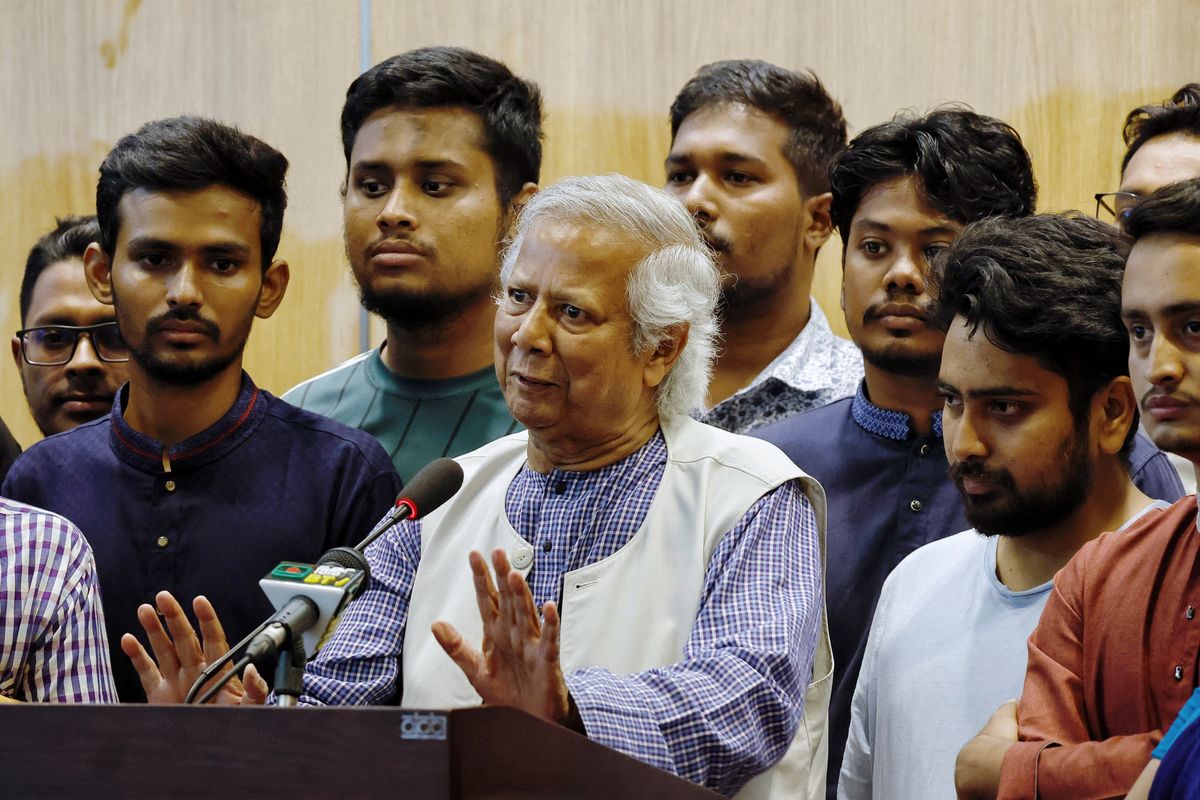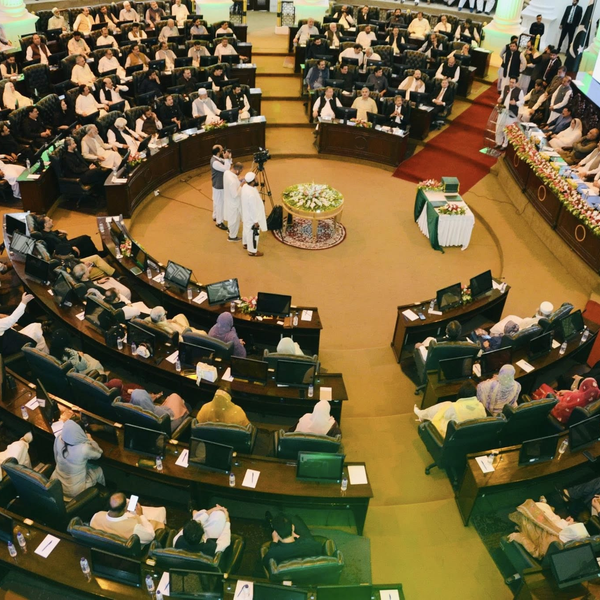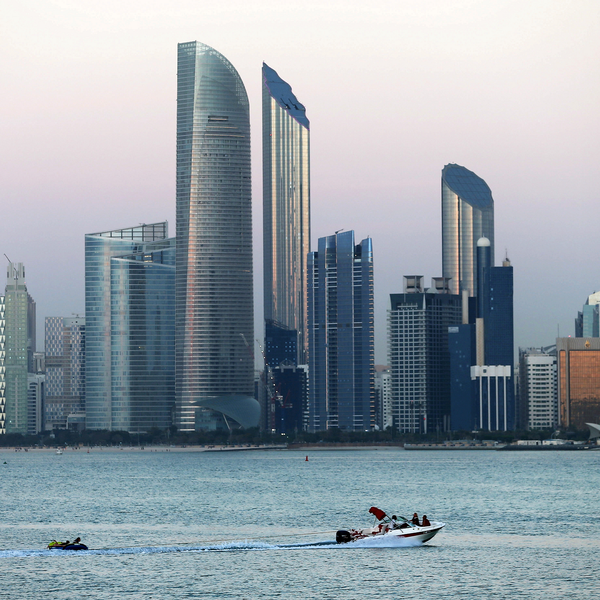Fight for climate money at COP29 'humiliating' says Bangladesh interim leader Yunus
'It's not a fish market' for haggling over damages, Bangladesh interim leader argues
Reuters
News Agency Partner
Reuters is a leading source of news and information, delivering fact-based reporting and expert analysis on international events and trends.

Nobel laureate Muhammad Yunus, the head of the interim government in Bangladesh, speaks during a press briefing in Dhaka, Bangladesh, August 8, 2024.
Reuters
Developing nations seek 10x increase in $100B annual climate funding
Rich nations reluctant to commit, want broader contribution base
Bangladesh faces severe climate impacts with floods, cyclones
Bangladesh's interim leader Muhammad Yunus on Wednesday slammed the 'humiliating' fight over money for poorer countries at the COP29 summit, demanding richer nations pay for the problem they caused.
"I think that's very humiliating, for nations to come and ask for money to fix... (the) problem that others caused for them," the Nobel Peace Prize laureate told AFP in an interview on the sidelines of the UN climate talks in Azerbaijan.
Delegates and officials, including Bangladesh interim leader Muhammad Yunus, filled the halls of Baku Stadium on Wednesday (November 13) as negotiations on climate resumed at the COP29 summit for a third day. Reuters
"Why should we be dragged here to negotiate? You know the problem."
Squalling for scraps
Nations are hoping to land a deal at COP29 significantly raising funding for climate action in developing nations like Bangladesh, which are least responsible for global warming but most at its mercy.
Some want the existing figure of $100 billion a year multiplied 10-fold to cover the cost of weaning their economies off fossil fuels and adapting to climate disasters.
From Rio in 1992 to Baku in 2024, the journey to tackle climate change has been one of ambition, setbacks, and shifting global commitments.
But rich countries obligated to pay, such as the United States and European Union, are reluctant to commit such large sums and want others to chip in, with negotiators making little ground at COP29.
Yunus, a micro-finance pioneer who became Bangladesh's interim leader in August after the ouster of autocratic leader Sheikh Hasina, said the haggling at COP29 was demeaning.
"It's not a fish market," he said.
Rich nations must meet burden
He said rich nations -- whose rise to prosperity and associated carbon emissions were overwhelmingly responsible for global warming to date -- should put a number on the table.
"You figure out how much is needed, not me," he said.
"It's not a question of haggling. It's not a question of negotiating. It's a question of solving."
Bangladesh is among the most vulnerable nations to climate change, with floods and cyclones frequently battering the low-lying country of roughly 170 million people.
In August, floods killed at least 40 people and forced nearly 300,000 residents to seek refuge in emergency shelters.










Comments
See what people are discussing